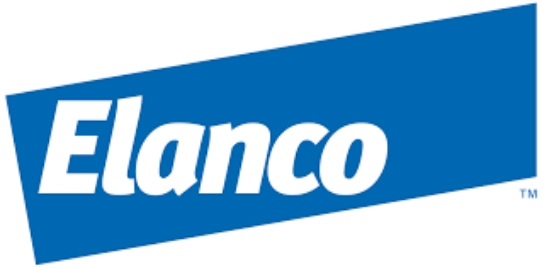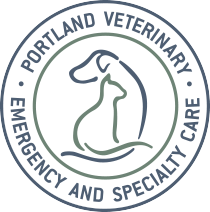
Continuing Education Dinner
PVESC’s next Continuing Education dinner event is scheduled for June 9, 2025, at the Holiday Inn by the Bay in Portland, Maine.
Registration for this event has closed.
Schedule of Events
Check-in: 5:30 to 6:00pm
Dinner Lecture: 6:00pm to 6:45pm
Door prizes at 6:45pm!
Lectures: 7:00pm to 9:00pm
Dinner Lecture
Time: 6:00pm to 6:45pm
Title: Blood Morphology Matters
Submitted for CEU Credits for Maine Veterinarians: One Hour
Presenter: Helen Michael, DVM, Ph.D, DACVP, IDEXX
This one-hour interactive PowerPoint presentation is designed for veterinarians. Drawing on real patient cases and comprehensive diagnostic reviews, this engaging and interactive lecture will provide an in-depth exploration of red blood cell (RBC) and white blood cell (WBC) morphology. Participants will examine a wide range of blood smear abnormalities and cellular changes, enhancing their understanding of how these findings correlate with underlying pathological conditions. Through case-based discussions and visual analysis, attendees will develop practical skills for applying morphological insights to real-world clinical decision-making.
Veterinarian Lectures
Time: 7:00pm to 8:00pm (Choose One)
Veterinarian Lecture A:
From Cute to Critical: Recognizing and Managing Brachycephalic Airway Syndrome in Practice
Presenter: Raphael Vezina-Audette, M.Sc, DVM, CVA, DACVAA

Dr. Vezina is a Board-Certified Veterinary Anesthesiologist and is currently in his 3rd year of Surgical Residency
This seminar begins with an introduction to brachycephalic airway syndrome (BAS), followed by a detailed look at its underlying pathophysiology. Attendees will then explore the clinical signs and diagnostic steps that help identify BAS in veterinary patients. The session continues with essential guidance on stabilization and emergency management, equipping veterinarians to handle acute presentations effectively. From there, the focus shifts to treatment options and strategies for long-term care, supporting ongoing management of affected animals. The seminar concludes with a discussion on prognosis, best practices for communicating with pet owners, and guidance on when to refer cases to specialists.
Submitted for CEU Credits for Maine Veterinarians: 1 Hour
All Veterinary Staff Lecture B:
Redefining Winning: Handling Difficult Conversations with Clients
Presenter: Brian Morgan, COO Best Pet Rx
Submitted for CEU Credits for Maine Veterinarians: 1 Hour

This presentation is designed for veterinarians and all veterinary staff. Difficult conversations with clients can lead to consequences that negatively impact the doctor/client relationship and ultimately patient care. In this presentation, we will discuss perceptions and biases that lead to negative escalation of difficult conversations. We will also review potential scenarios that lead to stressful interactions while offering an alternative approach that may lead to more positive communication. Lastly, we will share tools and tricks to help manage difficult conversations so that everyone wins in the end.
Submitted for CEU Credits for Maine Veterinarians: 1 Hour
Time: 8:00pm to 9:00pm (Choose One)
Veterinarian Lecture C:
Canine Atopy: Ditch the Itch and When to Refer
Presenter: Tyler Charbonneau, DVM, Residency Trained in Dermatology

This lecture will open with a concise overview of canine atopic dermatitis, including its pathogenesis and the primary causes of pruritus. We’ll then explore diagnostic approaches to common dermatologic conditions, review current treatment options, and discuss the reasoning behind selecting specific therapies. The session will wrap up with guidance on when a referral to a veterinary dermatologist is warranted and the benefits of doing so. The goal is to provide veterinarians with practical tools for everyday practice and the insight to recognize when specialized care is needed.
CEU Credits for Maine Veterinarians: 1 Hour
All Veterinary Staff Lecture D:
Beyond the Biopsy: Mastering Diagnostic Sampling in Veterinary Cancer Patients for Veterinary Technicians and Assistants
Presenter: Brittanie Partridge, DVM, DACVIM (Oncology)

Cytology and histopathology are pivotal diagnostic tools in veterinary oncology, helping us make accurate, timely diagnoses and guide treatment decisions. Proper sample collection is crucial for minimizing treatment delays and improving patient outcomes. Mastering diagnostic sampling techniques requires practice, and this lecture will provide valuable insights and tips to enhance your skills. We will primarily focus on fine needle aspiration techniques applied to various tissue types, recognizing features of malignancy and tumor types within cytologic samples, sample acquisition for flow cytometry, and perform a brief comparative assessment of various biopsy techniques. Finally, we will explore the application of new diagnostic technologies for early cancer detection in our patients.
Thank You to Our Sponsors:



For any questions, reach out to Kristine Suszczynski at 207-707-6282 or kristines@pvesc.com.
